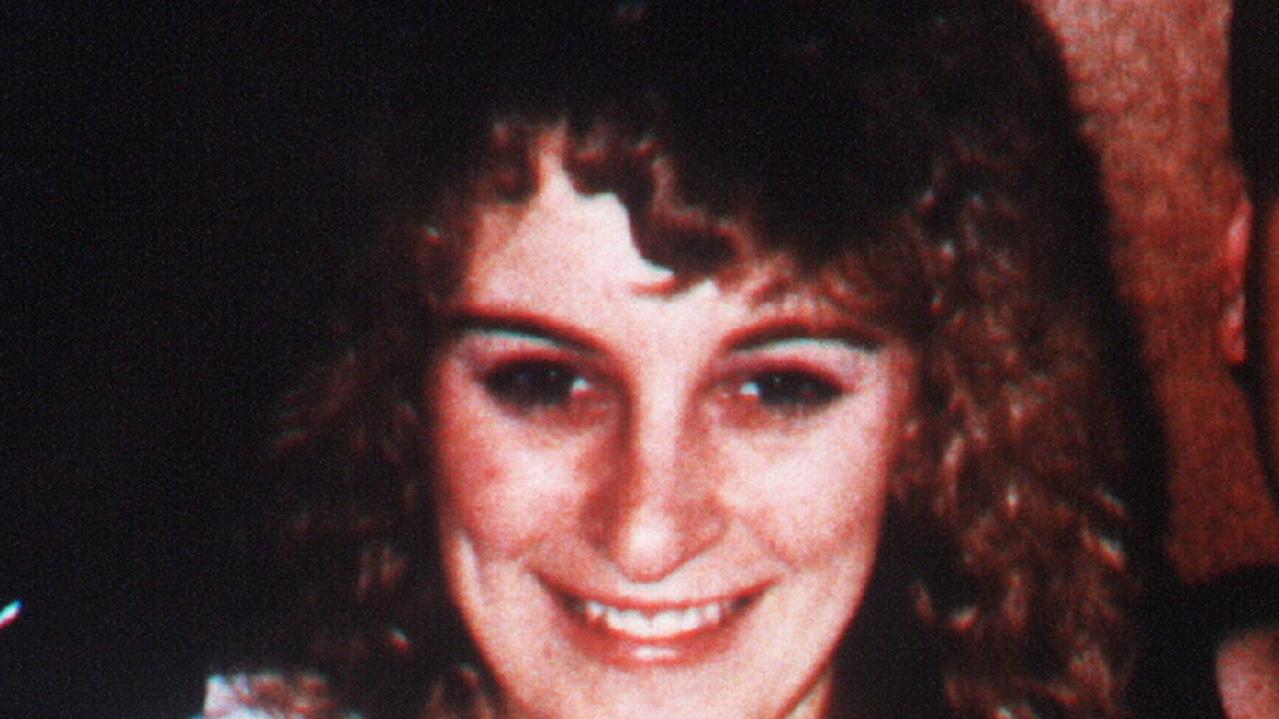The real Mark Chopper Read regretted the life he wasted
LIKE most crooks, Chopper Read was a lying and manipulative egotist. He was also intelligent, funny and hadn’t been raised to be a criminal. This is the Chopper I knew, writes Andrew Rule.
Behind the Scenes
Don't miss out on the headlines from Behind the Scenes. Followed categories will be added to My News.
IT’S 1979, and a hulking young heavyweight called Mark Brandon Read heads a bunch of the most dangerous men in the Victorian prison system.
Read and other inmates of H (”Hell”) Division in Pentridge have been ferried down Sydney Road to Brunswick Court.
Armed police swarm the place. A couple on the roof carry shotguns. Inside are large men with hard looks, bad suits and bulging pockets.
The biggest detective in six states, the late Garry Schipper of the late Major Crime Squad, pats down this reporter at the door with hands like Christmas hams.
I’m 22. He’s about 22 stone.
Chopper’s jailhouse stabbing
Read, then 25, and the rest of the crims are in the holding cells or prison vans backed up to court.
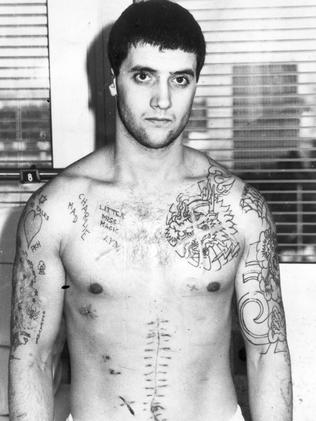
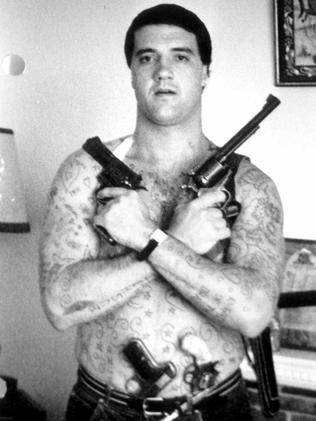
They are there to testify — or not — about a jailhouse stabbing that would feature 20 years later in Chopper, the film based loosely on Read’s bizarre and brutal life.
A big player that day is a genuinely evil prisoner, Greg “Bluey” Brazel, psychopathic son of a policeman.
Months earlier, Brazel conspired with another of Read’s prison “mates”, Jimmy Loughnan, to attack Read. They slit open his belly like a slaughterman gutting a cow. In court, Brazel muddies the truth using lawyers’ tricks picked up over the years.
As prison (and AFL football) etiquette requires, Read apparently can’t remember details of what he called “terrific sneak go’’, although his memory seems to return afterwards.
His intestines had spilt through the gash “like sausages’’, he later remarked about the attack that should have killed him.
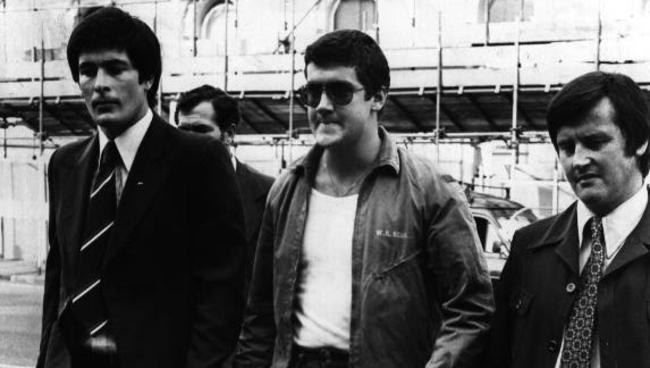
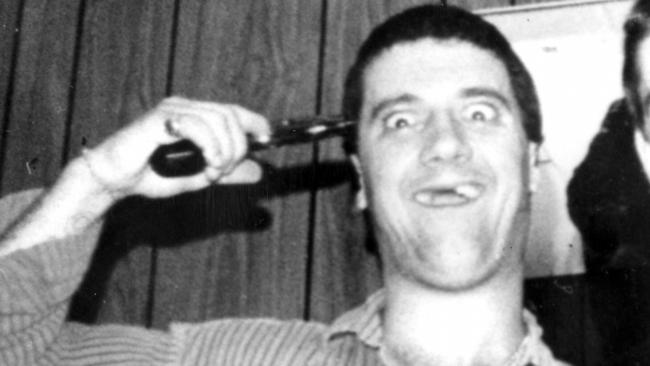
The day after the stabbing he had horrified hospital staff by getting out of bed to do push-ups, bursting dozens of stitches. He told nurses he was preparing for a revenge attack.
But why would anyone be surprised? After all, this was the man who’d asked another prisoner, Kevin Taylor, to hack his ears off with a razor, just to show he could get out of H-Division by going to hospital. Later he would joke about starting the “van Gogh Club’’ but the ear-cutting wasn’t funny at the time. He lost a lot of blood.
Chopper was a manipulative liar, but he was also intelligent and funny.
NEVER MISS A MINUTE — SUBSCRIBE TO ANDREW RULE’S PODCAST HERE, OR IF YOU’RE ANDROID HERE
He already had the nickname “Chopper”, which he said came from a 1960s cartoon character. By the 1990s, it would become part of the language — like Squizzy or Ned Kelly. Which is exactly what he wanted.
Like a lot of criminals, he was a lying and manipulative egotist. Unlike most, he was also intelligent, funny and hadn’t been raised to be a criminal.
Chopper’s childhood
One of his grandfathers was a Seventh Day Adventist clergyman. The other was “Bull’’ Read, a part-Chinese, part-Irish Australian who fought in World War I. Chopper’s father Keith fought the Japanese in World War II as a non-commissioned officer.
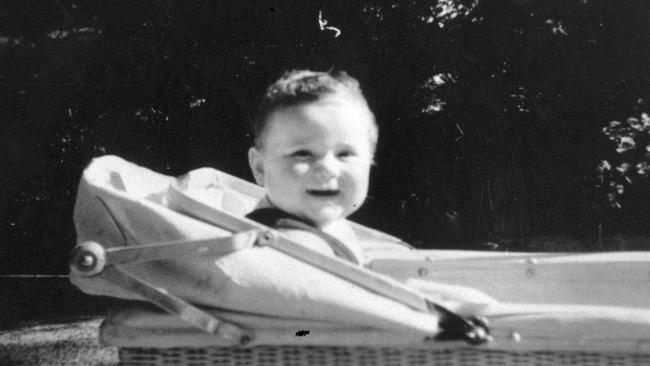
Keith Read presented as a law-abiding citizen but the reality was uglier: he was disturbed by war experiences that (he told his son) included shooting Japanese prisoners.
Keith slept with a loaded rifle beside him and brainwashed his son with rabid ultra-Right bigotry. His wife insisted Mark (and daughter Debbie) attend long church services each Saturday. It was, Read joked later, a case of “Praise the Lord and pass the ammunition.’’
The family moved often, from the northern suburbs to the Mornington Peninsula to Prahran, where Read left school young and roamed the streets with his “Surrey Road Gang’’. They were brawlers rather than thieves.
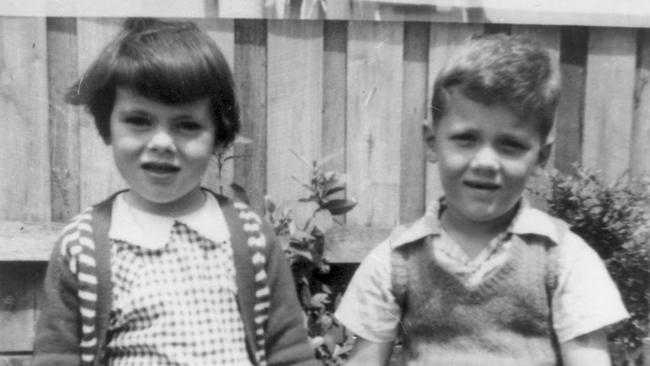
He dreamt of getting into the army but was rejected because of his flat feet. It was a fork in the road and he turned the wrong way.
Chopper became one of the most hated men in the underworld.
Soon, he was a young bouncer learning to be a standover man. Some “heavies’’ were bigger and some were better fighters but he showed no fear of pain — or of consequences — and that made him dangerous.
When he was locked up, he relished the notoriety. He preyed on other criminals and became one of the most hated men in an underworld he didn’t quite belong to. Inside, he led his “Overcoat Gang’’ against other prison factions and he got on well with “screws’’, many of them ex-soldiers like his father.
Outside, he followed a twisted code of loyalty mixed with ultra-violence straight out of A Clockwork Orange.
He tried to kidnap a County Court judge — in court — at gunpoint in a bizarre attempt to demand the freedom of his jailmate Jimmy Loughnan, the one who would later betray him.
A not-so-brave Alphonse Gangitano
On one of his brief spells of freedom, he swaggered into a nightclub with two sticks of gelignite under his overcoat and a lit cigar in his hand.
When Read flashed the gelignite and threatened to light the wicks he’d twisted together, the nightclub’s resident “protection’’ and standover man escaped through a toilet window.
This was Alphonse Gangitano, the so-called “Black Prince of Lygon Street’’ that Read derided as “a plastic Godfather.’’

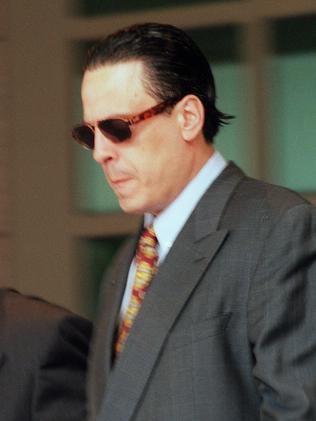
Gangitano extorted money from half of Lygon Street, bashed off-duty police, rigged boxing bouts and waved guns around. But when he heard Read was looking for him, he went overseas. When “Al’’ came back, he paid Read “a grand in the hand’’ monthly after Read casually mentioned he’d met Gangitano’s mother at the Vic Market.
It takes one extortionist to handle another.
At least, that was Read’s version: he was never one to let tedious details get in the way of a good story.
He was a natural-born yarn spinner, polishing and gathering stories over years inside.
He craved a niche in history.
How Chopper became famous
He got his chance in 1990 when John Silvester, then working for this newspaper’s forerunner The Sun with this reporter, interviewed him in Pentridge.
Silvester had earlier written a story dismissing Read as a manipulative thug with no redeeming features. After meeting him he changed this assessment to a manipulative thug with some redeeming features.
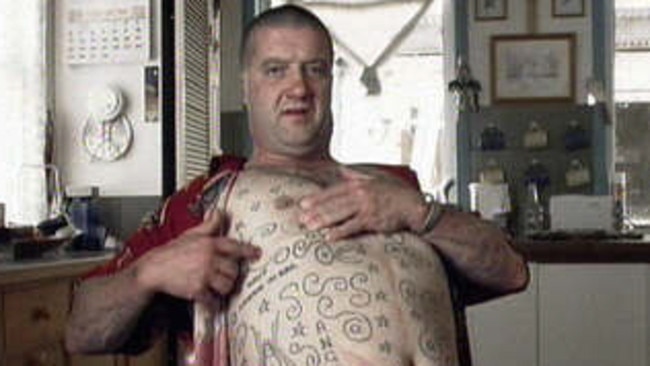
Chopper was desperate for someone to write a book about him.
Read was desperate for someone to write a book about him. He scrawled his yarns in letters and posted them to The Sun office.
Silvester and I used them as an outline to “ghost write’’ a rugged little book — Chopper from the Inside — that would become an unlikely cult hit. (It was followed by sequels of varying quality. The less Read wrote, the more his “ghosts’’ did.)
Read always thought he would die young. Lucky to survive his 20s, he survived when many of his contemporaries didn’t.
He got out of Pentridge before the book was published in late 1991 and went straight to Tasmania to stay away from people who wanted to kill him. But a drunken escapade — shooting outlaw bikie Sid Collins in the stomach — soon put him back behind bars. His long-suffering girlfriend Margaret Cassar returned to Melbourne alone.
Chopper movie, marriages
By the time he left jail for the last time in 1998, he had spent 23 of his 43 years in prison — and was starting to realise he’d wasted his life.
He married his first wife, Mary Ann Hodge, in Tasmania’s Risdon Prison in 1995. Their son, Charlie, was born in 1999 while they lived on the Hodge family farm with a menagerie of animals.
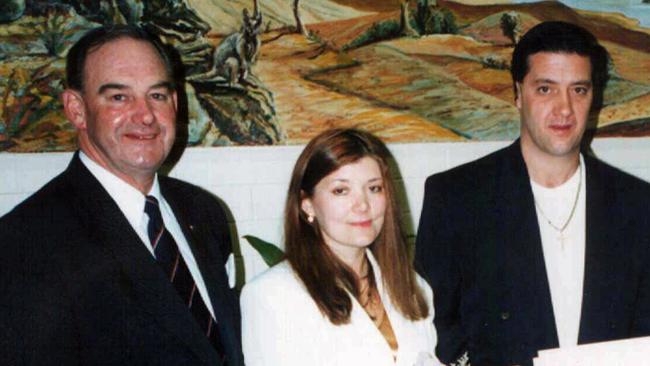
Meanwhile, film makers had come calling, fascinated by the black humour of his life story.
The makers of Romper Stomper, which had starred a young Russell Crowe, were keen for Crowe to play “Chopper’’. But it was producer Michele Bennett and a young director, Andrew Dominik, who swung the deal and made a film that won critical acclaim worldwide from the New York Times to Elmore Leonard.
Read suggested a battling television comedian play him in the film: Eric Bana is now an international actor and Dominik has since made two films starring Brad Pitt.
Meanwhile, Read stayed out of trouble — apart from appearing drunk on an ABC television chat show and talking about his crimes.
He left Tasmania in 2001 to return to Melbourne. He married his first girlfriend, Margaret, who produced a son, Roy.
Cancer, not a bullet
When Read revealed he had terminal liver cancer, it seemed his past had caught up with him.
But it’s not the bullets or the knife wounds that have done him in. What led to his liver disease is hepatitis he claimed he got in Pentridge from sharing razor blades. This might even be true, although some might say prisoners also share needles. Either way, the liver turned cancerous.
He joked about death but sometimes took it seriously. I have three wills — all different — he has made over the years. The first was in his big, childish handwriting. Next was a late-night request to “look after’’ both his sons if he died before they grew up, as he feared he would. The last was a smartly-typed document prepared by a solicitor.
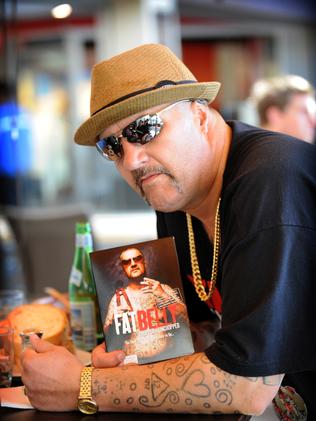
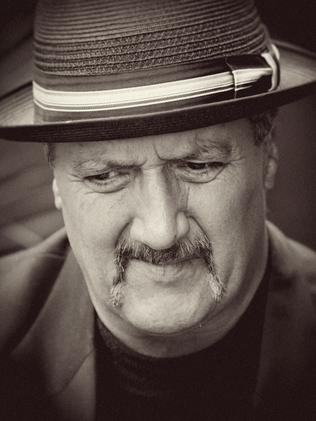
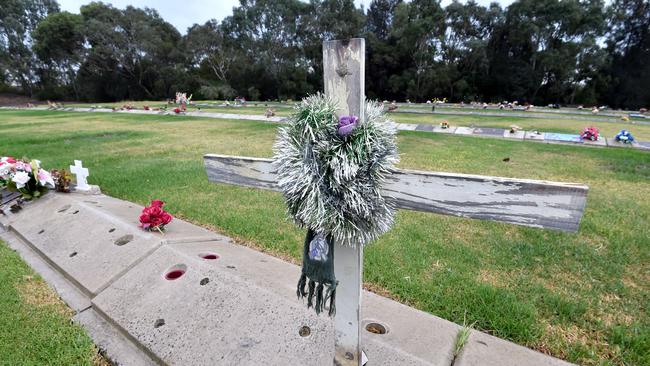
The man who in his better moments worried about his sons was Mark Read.
“Chopper’’ was the stage name for the grotesque character he played so long that he couldn’t drop the charade. Sometimes he confused the two.
The last words of that first book resonate more now than when I typed them in 1991.
“I know I have said that I regret nothing — but the truth is that I regret plenty. I regret my whole life.’’
Originally published as The real Mark Chopper Read regretted the life he wasted





